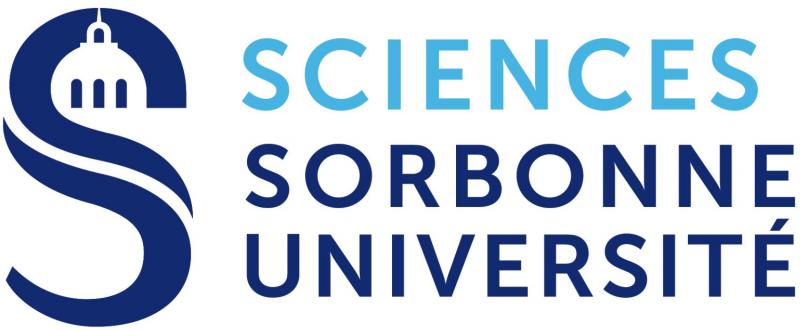Unraveling the role of proline and energy metabolism in drought tolerance of coffee trees: An integrative approach to enhance cultivation resilience under climate change
| ABG-131687 | Thesis topic | |
| 2025-05-05 | Other public funding |

- Biology
- Agronomy, agri food
Topic description
Climate change poses a significant threat to global coffee production, primarily due to rising temperatures and shifting rainfall patterns that directly affect water availability. In Brazil, where coffee is one of the most important traded crops, addressing water deficiency in coffee cultivation is a critical agricultural and economic challenge. A key strategy for improving resilience involves deepening our understanding of how coffee plants respond to drought and the underlying physiological and molecular mechanisms involved.
This PhD project will focus on the role of proline and energetic metabolisms in enhancing drought stress tolerance in coffee plants. Proline, a multifunctional amino acid, is known to accumulate in plants under environmental stress, contributing to osmotic adjustment and stress recovery. However, its specific functions, particularly in relation to osmotic regulation and energy metabolism in coffee under water-deficit conditions, remain poorly understood.
Our research aims to investigate how proline metabolism influences water relations and stress adaptation in coffee through detailed biochemical and molecular analyses. The study will focus on two major cultivated species: Coffea arabica and Coffea canephora (Robusta).
We will work with a diverse set of genetic resources available from the Agronomic Institute of Campinas (IAC), including Commercial cultivars and botanical varieties of C. arabica and C. Canephora as well as inter-specific hybrids.
The candidate will use an integrative approach combining phenotypic, physiological, molecular, and biochemical assessments to evaluate the impact of water deficit on selected genotypes with contrasting drought tolerance. Comparative transcriptomic and metabolomic profiling will be conducted to identify critical pathways and novel regulatory mechanisms associated with enhanced drought resilience.
The insights gained from this project will contribute to the development of improved coffee genotypes through breeding programs, ultimately supporting efforts to mitigate the long-term impacts of climate change on coffee cultivation.
Starting date
Funding category
Funding further details
Presentation of host institution and host laboratory
Sorbonne Université (SU) is a prestigious global research institution renowned for its comprehensive academic offerings across the arts, humanities, social sciences, natural sciences, engineering, and medicine. It serves over 55,600 students, including 10,200 international students and 4,400 doctoral candidates. The university comprises three main faculties and hosts France’s largest university library. With more than 3,400 research professors and 3,100 research collaborators across 130 laboratories, Sorbonne Université is a leader in scientific output, producing over 8,500 publications annually and ranking among the top institutions for securing EU research grants.
At the Institute of Ecology and Environmental Sciences of Paris (iEES Paris, SU), the APCE team focuses on the multifaceted roles of proline accumulation in response to water and salt stress, as well as its involvement in various aspects of plant development. Their research aims to elucidate the complex regulatory mechanisms that govern proline metabolism in plants. The team is equipped with extensive facilities for plant cultivation, including growth chambers and greenhouses, as well as advanced tools for molecular biology and biochemistry, such as Q-PCR, PCR, spectrophotometry, oxygen electrodes, HPLC, FPLC, high-speed centrifuges, and ChemiDoc Imaging Systems. The laboratory is also highly proficient in conducting fluorescence-based assays. As a result, it offers a uniquely supportive environment for the exchange of knowledge and innovation in the study of proline metabolism.
PhD title
Country where you obtained your PhD
Institution awarding doctoral degree
Graduate school
Candidate's profile
We are seeking a highly motivated student with the following qualifications:
- Master’s degree in Plant Biology or related field
- Solid background in plant molecular biology, biochemistry and biostatistics
- Experience in transcriptomics and metabolomics is a plus
- Strong organizational and communication skills
- Fluent in English (minimum B2 level)
- Willingness to travel (part of the research will be conducted in Brazil)
Vous avez déjà un compte ?
Nouvel utilisateur ?
Get ABG’s monthly newsletters including news, job offers, grants & fellowships and a selection of relevant events…
Discover our members
 Institut Sup'biotech de Paris
Institut Sup'biotech de Paris  CASDEN
CASDEN  Nokia Bell Labs France
Nokia Bell Labs France  MabDesign
MabDesign  ASNR - Autorité de sûreté nucléaire et de radioprotection - Siège
ASNR - Autorité de sûreté nucléaire et de radioprotection - Siège  MabDesign
MabDesign  Tecknowmetrix
Tecknowmetrix  SUEZ
SUEZ  Groupe AFNOR - Association française de normalisation
Groupe AFNOR - Association française de normalisation  ADEME
ADEME  Laboratoire National de Métrologie et d'Essais - LNE
Laboratoire National de Métrologie et d'Essais - LNE  Ifremer
Ifremer  PhDOOC
PhDOOC  Aérocentre, Pôle d'excellence régional
Aérocentre, Pôle d'excellence régional  ONERA - The French Aerospace Lab
ONERA - The French Aerospace Lab  TotalEnergies
TotalEnergies  ANRT
ANRT  Généthon
Généthon  CESI
CESI







